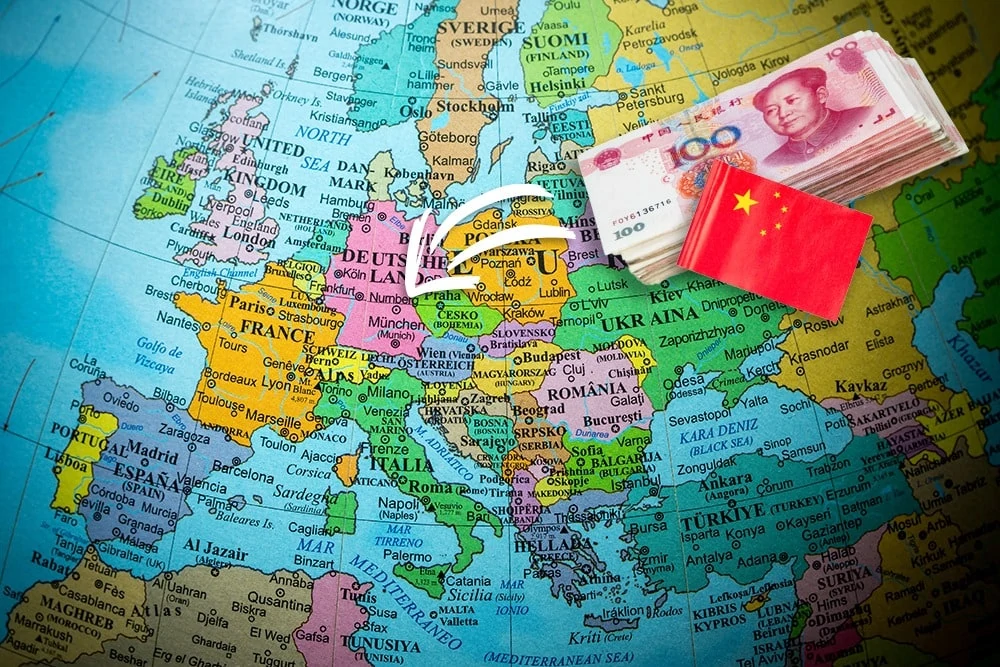As China asserts its authority on the world stage, European countries, including the UK, have found themselves to be one of the chief beneficiaries, writes Tom Pattinson
As China comes increasingly close to taking the title of world’s largest economy it has been on something of a spending spree over much of the last decade. During the 2008 global recession, some struggling Western companies were up for sale at knock-down prices and as China found itself cash-rich, it took advantage of the global economic situation.
Property in Sydney, vineyards in Bordeaux, advanced manufacturing companies in Germany – high-net-worth individuals, private companies and state-owned enterprises were picking up football clubs and fintech start-ups from every corner of the globe. Significant investment into resource-rich areas such as Africa has been going on for some time, and the 2013 Belt and Road Initiative has seen investment in to other Asian countries boom too. However, Europe has also been a major benefactor of Chinese investment, and in a time when many countries have seen GDP growth dwindle, it has been a well-received boost.
Europe has been a major benefactor of Chinese investment, and in a time when many countries have seen GDP growth dwindle, it has been a well-received boost
This has especially been seen in Eastern Europe. The Czech Republic has seen state-owned energy company CEFC China Energy snap up airlines, financial groups, media conglomerates, travel companies and even football teams. The Prime Minister of Hungary, Viktor Orban, laid it out in simple terms: “Central Europe has serious handicaps to overcome in terms of infrastructure. If the EU cannot provide financial support, we will turn to China,” he said.
Although investing abroad does no harm to China’s global soft power image, its main purpose is to add value as part of the Made in China 2025 strategy – to move away from low-end manufacturing and progress into the high-tech industries. The Economist newspaper wrote recently that the EU is like a ‘supermarket of opportunities to extract benefits that can help [China] rise.’
The US who, under President Trump, regard Made in China 2025 as a threat, has restricted Chinese investment in to America and some high-profile spats have ensued. Europe has received six times more investment (£9.3 billion) than North America (£1.55 billion), according to Baker McKenzie and Rhodium Group.
Whilst Eastern European countries are crying out for infrastructure investment, Germany and the UK have benefited from having an abundance of high-tech companies that appeal to Chinese investors. The following special report focuses on Chinese investment in the north of England under the Northern Powerhouse label, the campaign by former Chancellor George Osborne and his team that has combined with a drop in the value of the pound following 2016’s Brexit referendum to make the north of England the jewel in the crown for Chinese investment.
Brexit continues to have an impact on international investors. The ‘Brexit discount’ due to the drop in the pound has most likely attracted some investment, whilst the uncertainty has almost certainly put others off. However according to Rhys Whalley, Executive Director of the Manchester China Forum, the Chinese see investing in the UK as fundamentally positive in the long-term. However, he says: “The longer the uncertainty goes on [around Brexit] the higher the risks of losing major investments to other nations like Ireland and the Netherlands.”
China has, to some degree, reduced its overseas investment – mostly due to central government’s restrictions on outbound capital. And whilst this has led to something of a drop off in the volume of interest in Chinese investment in the UK, it is not necessarily a bad thing. “It weeds out less sophisticated investors and has honed in on those who are ready to invest, who already have their capital offshore, and who are more serious about their investment activities in UK,” says Whalley.
Read more in investment into the Northern Powerhouse


